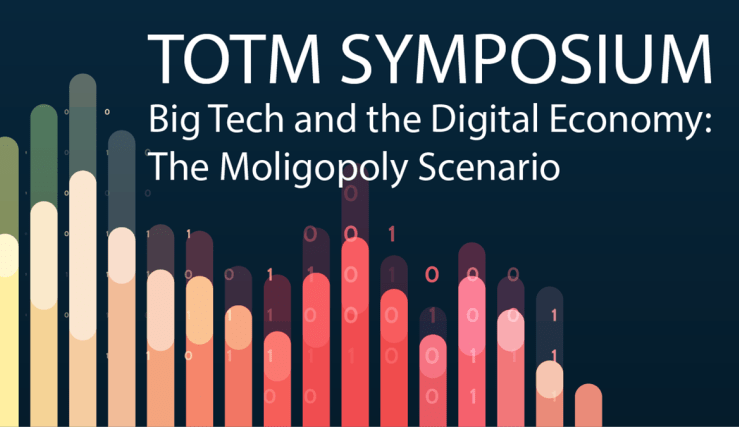Showing archive for: “Harm to Competition”
FTC Moves Closer Toward Ex Ante Merger Regulation
The Federal Trade Commission (FTC) has taken another step away from case-specific evaluation of proposed mergers and toward an ex ante regulatory approach in its Oct. 25 “Statement of the Commission on Use of Prior Approval Provisions in Merger Orders.” Though not unexpected, this unfortunate initiative once again manifests the current FTC leadership’s disdain for ... FTC Moves Closer Toward Ex Ante Merger Regulation
Is There Any Market Power in Online Display Advertising?
A lawsuit filed by the State of Texas and nine other states in December 2020 alleges, among other things, that Google has engaged in anticompetitive conduct related to its online display-advertising business. Broadly, the Texas complaint (previously discussed in this TOTM symposium) alleges that Google possesses market power in ad-buying tools and in search, illustrated ... Is There Any Market Power in Online Display Advertising?
FTC Antitrust Enforcement and the Rule of Law
The language of the federal antitrust laws is extremely general. Over more than a century, the federal courts have applied common-law techniques to construe this general language to provide guidance to the private sector as to what does or does not run afoul of the law. The interpretive process has been fraught with some uncertainty, ... FTC Antitrust Enforcement and the Rule of Law
Congress Should Not Grant the FTC Untrammeled Authority to Obtain Monetary Relief
The U.S. House this week passed H.R. 2668, the Consumer Protection and Recovery Act (CPRA), which authorizes the Federal Trade Commission (FTC) to seek monetary relief in federal courts for injunctions brought under Section 13(b) of the Federal Trade Commission Act. Potential relief under the CPRA is comprehensive. It includes “restitution for losses, rescission or ... Congress Should Not Grant the FTC Untrammeled Authority to Obtain Monetary Relief
Antitrust Statutorification
A lot of water has gone under the bridge since my book was published last year. To close this symposium, I thought I would discuss the new phase of antirust statutorification taking place before our eyes. In the United States, Congress is working on five antitrust bills that propose to subject platforms to stringent obligations, ... Antitrust Statutorification
A First Glance at the Biden Executive Order on Competition: The Good and the Bad (Including Much that Looks Ugly)
The Biden Administration’s July 9 Executive Order on Promoting Competition in the American Economy is very much a mixed bag—some positive aspects, but many negative ones. It will have some positive effects on economic welfare, to the extent it succeeds in lifting artificial barriers to competition that harm consumers and workers—such as allowing direct sales ... A First Glance at the Biden Executive Order on Competition: The Good and the Bad (Including Much that Looks Ugly)
Breaking Down House Democrats’ Forthcoming Competition Bills
Democratic leadership of the House Judiciary Committee have leaked the approach they plan to take to revise U.S. antitrust law and enforcement, with a particular focus on digital platforms. Broadly speaking, the bills would: raise fees for larger mergers and increase appropriations to the FTC and DOJ; require data portability and interoperability; declare that large ... Breaking Down House Democrats’ Forthcoming Competition Bills
Bad Blood at the FTC
John Carreyrou’s marvelous book Bad Blood chronicles the rise and fall of Theranos, the one-time Silicon Valley darling that was revealed to be a house of cards.[1] Theranos’s Svengali-like founder, Elizabeth Holmes, convinced scores of savvy business people (mainly older men) that her company was developing a machine that could detect all manner of maladies from ... Bad Blood at the FTC
Antitrust Lessons from AT&T’s M&A Fiasco
The chorus of condemnation continued with vigor even after the DOJ’s loss in court and AT&T’s consummation of the transaction. With AT&T’s May 17 announcement that it will unwind the two-year-old acquisition and therefore abandon its strategy to integrate content and distribution, it is clear these predictions of impending market dominance were unfounded. This widely ... Antitrust Lessons from AT&T’s M&A Fiasco
The FTC Did Not ‘Fumble the Future’ in Its Google Search Investigation
Politico has released a cache of confidential Federal Trade Commission (FTC) documents in connection with a series of articles on the commission’s antitrust probe into Google Search a decade ago. The headline of the first piece in the series argues the FTC “fumbled the future” by failing to follow through on staff recommendations to pursue ... The FTC Did Not ‘Fumble the Future’ in Its Google Search Investigation
Congress Should Not Legalize a News Media Cartel
Amazingly enough, at a time when legislative proposals for new antitrust restrictions are rapidly multiplying—see the Competition and Antitrust Law Enforcement Reform Act (CALERA), for example—Congress simultaneously is seriously considering granting antitrust immunity to a price-fixing cartel among members of the newsmedia. This would thereby authorize what the late Justice Antonin Scalia termed “the supreme ... Congress Should Not Legalize a News Media Cartel
Guiding a Post-Brexit UK Trade Liberalization Strategy
In the wake of its departure from the European Union, the United Kingdom will have the opportunity to enter into new free trade agreements (FTAs) with its international trading partners that lower existing tariff and non-tariff barriers. Achieving major welfare-enhancing reductions in trade restrictions will not be easy. Trade negotiations pose significant political sensitivities, such ... Guiding a Post-Brexit UK Trade Liberalization Strategy













